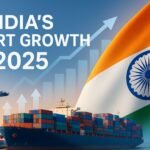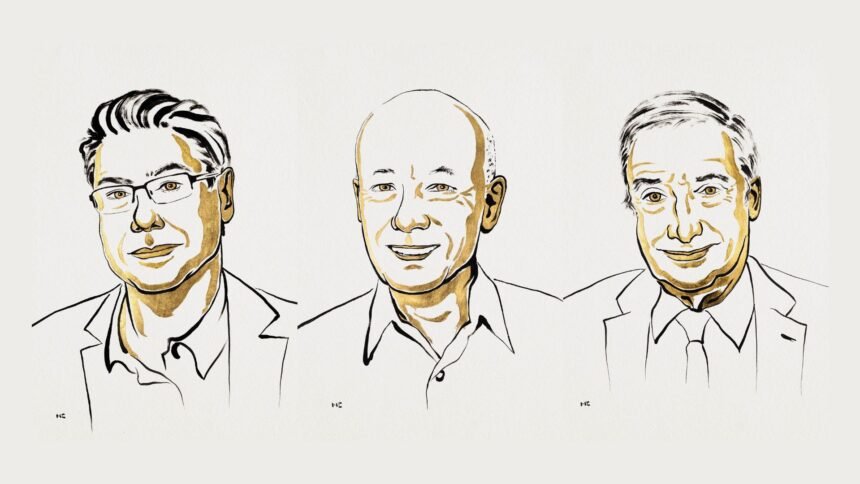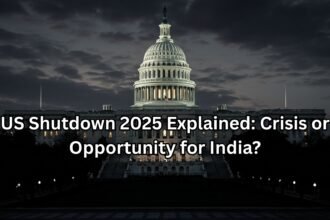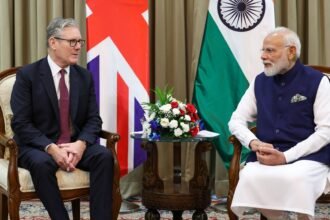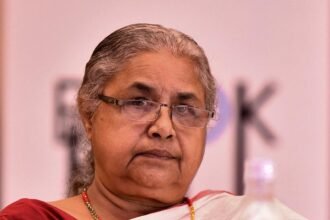Stockholm: The Royal Swedish Academy of Sciences announced the Sveriges Riksbank Prize in Economic Sciences in Memory of Alfred Nobel 2025 on Monday. This year the prestigious honor has been awarded to three economists Joel Mokyr, Philippe Aghion and Peter Howitt. They received the prize for their work explaining “sustained growth through technological progress” which has helped the world understand how after centuries of stagnation, unprecedented economic growth became possible over the last 200 years.
The prize is awarded with one half to Joel Mokyr and the other half jointly to Philippe Aghion and Peter Howitt.
Why This Honour?
For most of human history economic stagnation was the norm, with living standards barely changing from one generation to the next. However, this changed with the Industrial Revolution about two centuries ago when the world entered a new era of sustained growth. This year’s laureates have solved this puzzle from different perspectives explaining why and how this transformation was possible.
Joel Mokyr: The Story of Growth from the Pages of History
Economic historian Joel Mokyr explained through his research why technological breakthroughs before the Industrial Revolution failed to generate sustained economic growth. He emphasized the relationship between two types of knowledge:
- Propositional Knowledge: A systematic description of natural phenomena that explains “why” something works.
- Prescriptive Knowledge: Practical instructions, drawings or recipes that describe “how” to make something work.
Mokyr argued that before the Industrial Revolution, these two forms of knowledge were largely separate. People knew certain techniques worked but not why. During the Enlightenment as science and practice began to merge a flow of “useful knowledge” was unleashed, which in turn gave rise to continuous innovation. Mokyr also highlighted that for sustained growth, it is crucial for a society to be open to new ideas and permit change.
Aghion and Howitt: The Mathematical Model of ‘Creative Destruction’
In a joint publication from 1992, Philippe Aghion and Peter Howitt presented a mathematical model that explains how growth is sustained in modern economies. Their theory is known as ‘Creative Destruction’.
According to this model:
- Companies invest in creating better products or processes to become market leaders.
- When a new, superior technology emerges, it renders the old technology and its products obsolete, driving incumbent firms out of the competition.
- This process is “destructive” because old products and jobs are eliminated but it is also “creative” because it is built on innovation and drives the overall economy forward.
Their work demonstrates that while this process can be turbulent and disruptive at the micro-level it forms the foundation of sustained economic growth at the macro-level.
What This Research Means for Today
The research of these laureates is not merely historical; it provides essential tools for understanding today’s challenges:
- Growth Cannot Be Taken for Granted: Their work is a reminder that economic stagnation has been the historical norm not growth. We must be aware of threats that can halt progress, such as excessive market dominance by a few firms or blockades against new ideas.
- Winners and Losers of Innovation: The process of ‘creative destruction’ creates both winners and losers. It is therefore important to have policies in place to support workers who are displaced, for example through systems sometimes called “flexicurity”.
- Future Technologies: Mokyr’s work suggests that technologies like Artificial Intelligence (AI) could further accelerate the accumulation of useful knowledge by strengthening the feedback loop between propositional and prescriptive knowledge.
In summary this year’s Nobel laureates have taught us that sustained economic growth is the result of a complex interplay between science practical innovation, and a society that accepts change. Their work provides a roadmap for governments and policymakers worldwide to sustain growth in the future.
Also Read: Venezuelan leader María Corina Machado wins 2025 Nobel Peace Prize



